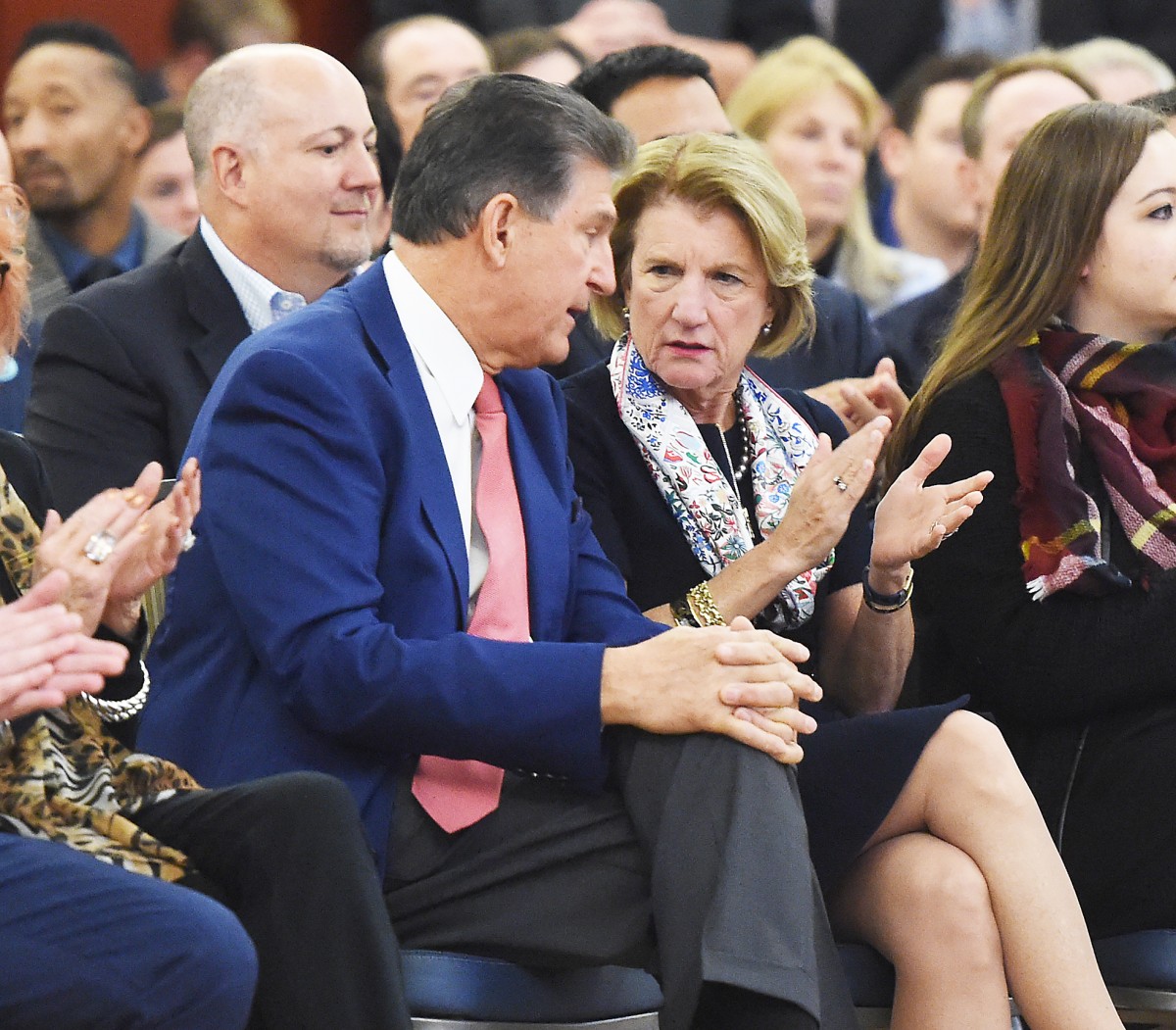MORGANTOWN – Sens. Shelley Moore Capito and Joe Manchin both spent time with members of the West Virginia press Thursday to talk about voting and infrastructure legislation.
On Wednesday, Senate Republicans used the filibuster to block S1, the For the People Act dealing with federal oversight of state voting laws, to the floor for a debate, effectively killing it.
Both senators had opposed it for different reasons.
Capito again Thursday repeated her view that S1 was an “enormous overreach and takeover attempt by, basically, the Democrats to rewrite our election laws at the federal level.”
As it was written, it forbade voter ID and e-voting for veterans and people with disabilities. It mandated same-day registration, turned the FEC partisan, allowed for ballot harvesting, provided a 6-1 public campaign financing match and supported D.C. Statehood.
After publicly opposing S1, Manchin voted to bring it to the floor. “I didn’t change my mind.” He said Thursday that this was because Democrat leadership agreed to take up his amended, scaled-down version.
He tried to urge his GOP colleagues to allow the debate on his version, he said. “It was significantly narrower.” The original was topped 880 pages, his was 350.
His office provided a list of his amendments. It expanded voter ID law to allow for more types, reflecting West Virginia’s law. It eliminated a mandate for states to adopt voting machines that haven’t been built yet. It removed the support for D.C. Statehood and the provision to allow ballot harvesting, public funding, the partisan FEC restructuring and other measures he and Republicans opposed.
It did make Election Day a federal holiday, allow automatic DMV voter registration with an opt-out, and expanded early voting periods.
In place of S1, Manchin said he’s working with Sen. Lisa Murkowski, R-Alaska, to renew and update the John Lewis Voting Rights Act, which originally passed in 1965 but had a portion struck down by the U.S. Supreme Court in 2013 concerning federal veto power over certain state voting laws.
Manchin said the new version needs to correct what the court addressed in 2013.
“It’s always been bipartisan, There’s no reason it should not be bipartisan again,” he said of voting rights law.
Capito said even with Manchin’s amendments, it was still “very much a federal takeover,” opposed by 54 of the state’s 55 county clerks. “I just think it’s a political exercise, a power grab, and I can’t go along with that.”
Both senators expressed hope for the most recent infrastructure package, agreed to by President Biden and the bipartisan G20 group of senators.
Capito said she’s pleased the effort has been successful, “but we’re far from having this across the threshold over to the president’s desk. I need to see the details before I can fully embrace this. … I’m in a wait-and-see position.”
Manchin credited Capito for launching the negotiations through a different GOP proposal several months ago – one that Biden ultimately abandoned for this one – that served as the template for the new proposal.
“Nobody got everything they watned in the deal, but the package is a testament that we can, if we work hard enough and are determined, accomplish heavy, heavy challenges in a bipartisan way.” He’s told it’s the largest infrastructure proposal in the history of the country.
Like Capito, he opposed including what’s been called human infrastructure in the bill, preferring to deal with that separately, and limiting this one to traditional infrastructure – water and sewer, roads and bridges, broadband, airports and ports.
Along with reauthorization of existing spending, the bipartisan framework proposes $579 billion in new spending, including $110 billion for roads, bridges and major projects; $48.5 billion for public transit; $7.5 billion for electric vehicle infrastructure; $55.2 billion for water infrastructure; and $65 billion for broadband.
The proposed pay-fors – the financing – include reducing the IRS tax gap (between what’s owed and what’s collected), repurposing unused COVID relief funds and tapping funds from the strategic petroleum reserve.
TWEET David Beard @dbeardtdp EMAIL dbeard@dominionpost.com




